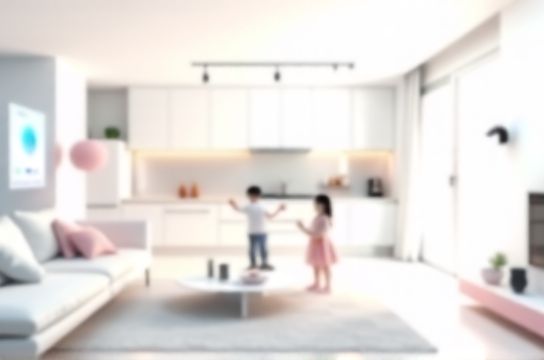Smart Living Lifestyle Products China Integrating Tech into Home Life
- 时间:
- 浏览:48
- 来源:OrientDeck
In the fast-paced rhythm of modern life, Chinese consumers are increasingly embracing smart living lifestyle products that blend technology seamlessly into everyday home routines. From voice-controlled lights to AI-powered refrigerators, the smart home revolution in China isn’t just a trend—it’s a full-blown transformation reshaping how people live, relax, and manage their households.

China has become a global powerhouse in smart home innovation. According to Statista, the smart home market in China is projected to reach $109 billion by 2025, growing at a CAGR of 18.3%. With tech giants like Xiaomi, Huawei, and Alibaba leading the charge, integration between devices is smoother than ever—thanks to localized ecosystems like Mi Home and Huawei HiLink.
What makes Chinese smart living products stand out? It’s not just about flashy features. It’s about practicality, affordability, and deep cultural alignment. For example, air purifiers with real-time PM2.5 tracking are more than gadgets—they’re essential in cities where air quality fluctuates. Smart rice cookers with app-based controls let users start dinner from the office. Even bathroom mirrors now come with built-in displays showing weather and news while you brush your teeth.
Let’s break down some of the most popular categories driving this movement:
Top Smart Home Devices in China (2024)
| Product Category | Market Penetration (%) | Avg. Price (CNY) | Key Brands |
|---|---|---|---|
| Smart Speakers | 42% | 199 | Xiaomi, Alibaba Tmall Genie, Baidu |
| Smart Lighting | 38% | 150 | Yeelight, Philips (localized models) |
| Smart Security Cameras | 56% | 299 | Hikvision, Dahua, Xiaomi |
| Robotic Vacuums | 31% | 2,100 | Ecovacs, Roborock, Mijia |
| Smart Air Purifiers | 45% | 1,200 | Blueair, Xiaomi, Panasonic |
One major reason for rapid adoption? Interoperability. Unlike fragmented markets elsewhere, many Chinese smart devices work harmoniously within a single ecosystem. Want to turn off the lights, lock the door, and start the air purifier with one voice command? Say “Xiao Ai, go to sleep mode” and it’s done.
Another game-changer is AI-driven personalization. Smart fridges learn your eating habits; AC units adjust based on your daily schedule; even shower systems remember your ideal water temperature. This isn’t sci-fi—it’s standard in new urban apartments.
But it’s not all perfect. Privacy concerns linger, especially with always-on cameras and voice assistants. Still, local brands are responding with enhanced data encryption and on-device processing to keep information within China’s firewall.
For global readers eyeing this space: if you're looking to understand the future of smart homes, look east. China isn’t just adopting smart tech—it’s redefining what ‘home’ means in the digital age.